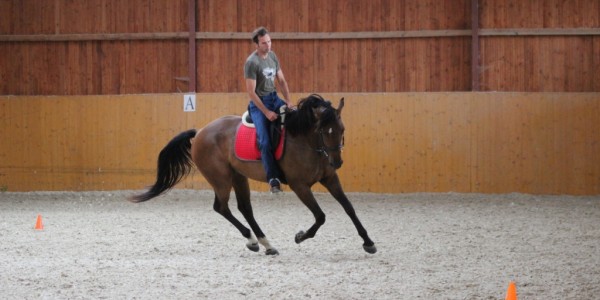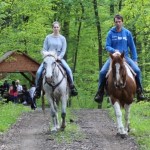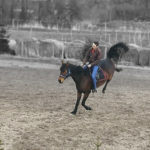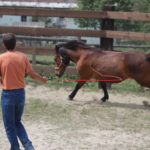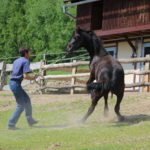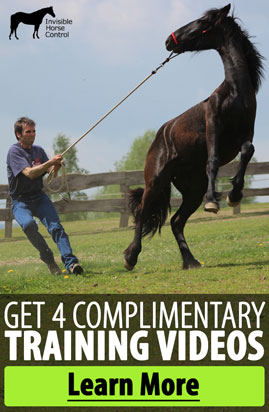Hurray I am already learning how to get my horse collected
You know what makes me roll my eyes? When I see a “horse riding coach” teaching complicated things like getting your horse collected to people who are just nowhere ready for it yet.
I have nothing against learning how to get your horse collected, don’t get me wrong. However, I don’t like when people think they can get to the “end” of the training process by simply skipping half of it.
What you are going to achieve is the exact opposite. You are going to get stuck, or you are even going to start getting worse.
There are things you must not skip
The training process is a system where one thing goes after another. There are things in the training process that you cannot skip. And it doesn’t matter if you are riding English or Western.
For example, you should first get your horse to keep a nice steady pace. His steps should be consistent and he should be going straight by himself.
Another step should be getting your horse relaxed. His motion should be smooth. After that you can improve the way he reacts on the pressure when you pull your reins, so you can easily adjust the position of his head and stop or back up with much less effort.
While working on this you can also be improving the way your horse reacts on the pressure of your legs. You want him to willingly speed up or move to the side with his front, his rear or his whole body when you press him with your leg. While doing that you can start working on exercising and strengthening the muscles on your horses back.
One of the things you need before you start working on getting your horse collected to strengthen his back muscles.
You can tell your horses back muscles are strong enough by the way he can do the stand still to canter transition. If he nicely goes from a stand still straight to canter, you know his back is quite strong already.
Are you really ready?
However it is not just the horse that has to be ready to start practicing collection, the rider also has to be ready. If the rider can’t feel what exactly his horse does underneath him he should not try to practice collection. The rider should be able to tell which canter lead his horse is in, he should be able to tell whether his horse is turning around his inner rear leg or his outer rear leg. Or if he is moving his rear to the side.
When I ask for a small circle and my horse goes on the circle, after he finishes it and I want to go straight again I stop asking him to be going on the circle.
When you want to stop, you ask your horse to stop and after he stopped already you don’t ask him to stop anymore.
It is the main principle of horse riding, you apply pressure and as soon as your horse does what you wanted, you remove it. The reason I talk about it is that if you want to ask your horse to get collected you have to be able to feel when your horse actually gets collected.
Otherwise, you might be able to ask him for it, but if you are not able to tell when he gets collected you don’t know when to release the pressure. Releasing the pressure is the most important part of it all that tells your horse he did something right.
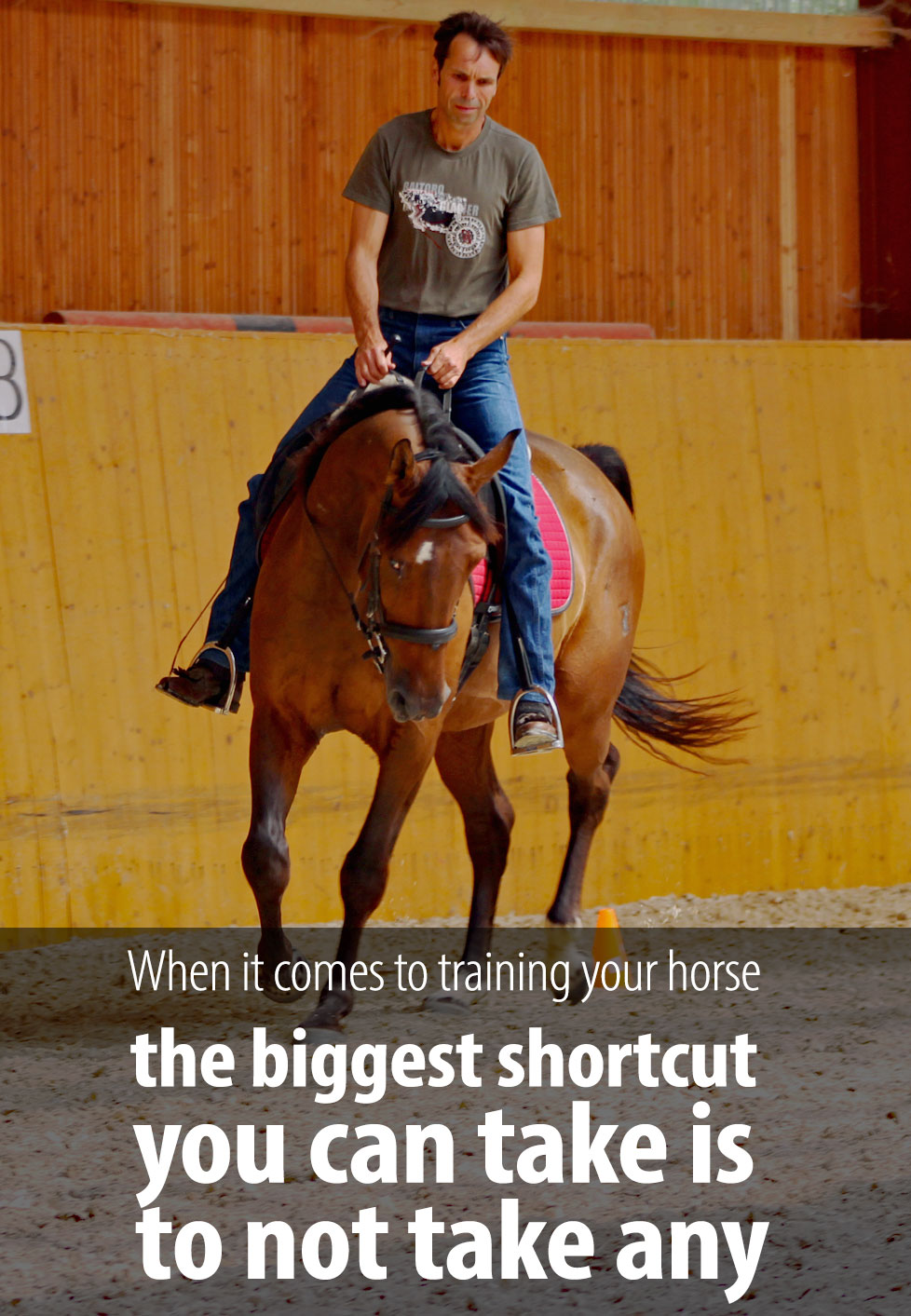
Pin this article on your Pinterest!
It is sort of like as if your partner, your husband or your wife, asked you to take out the trash and you thought “I am too lazy at the moment I will do it later”. But your partner started shouting, and then started kicking you in the butt to take it out now.
You probably would be bothered by the shouting and your butt would get tired of the kicking so you would take the trash out immediately.
But to your surprise, as you would get back and the trash would already be taken out, your partner would still be shouting and kicking…
If that happened you would immediately look for another way to stop the kicking and the shouting.
It is the same with your horse. If you are not able to tell reliably when your horse is collected and when he isn’t, the only thing you will be able to do is to spoil him and get him going against you.
What happens when you try it too early?
The reason I am writing about this that I have seen one coach trying to teach her client to get his horse collected when the person she was teaching was not yet even able to sit on the horse properly in trot.
The result was 20 minutes of confused pulling reins and kicking with and no collection in the end.
What got me shaking my head the most was that the coach was looking pleased with the lesson…
They could have learned something simpler and improve but instead, Both the rider and the horse got worse.
It is important to learn to right things in the right time. You are going to move forward much faster. If you are not able to stop reliably you should work on improving that, if you are not able to do a small circle properly you should practice that. If your horse doesn’t pay attention to you, you should be working on improving that.
When a horse ran away with me and I was not able to stop him I never cared about not beeing able to get him collected, I always cared about not beeing able to stop him.
I often see two types of horse riding coaches, ones that like to talk about the difficult exercises and they try to teach them too early so they can brag about their client already learning it. And those who talk less about them and they just get there by following clear steps that build on one another.
When it comes to training your horse the biggest shortcut you can take is to not take any
It will be faster, safer more enjoyable and more rewarding.
If you liked this article claim my Free Video Series, you will see all the little steps I take while teaching my horse to stop without reins, or when I want to learn canter transitions.
You will be able to try all the simple steps and then just find yourself doing the stand still to canter transition while always getting the canter lead you ask for. Simply by having all the steps.
CLICK HERE TO CLAIM THE FREE VIDEO SERIES
